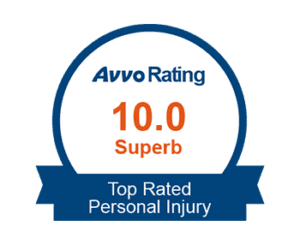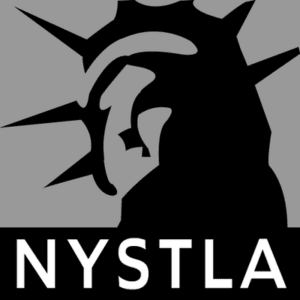Boating is a popular recreational activity in New York, with its expansive waterways offering picturesque settings for leisure and adventure. However, with the increasing number of boats navigating these waters, accidents are an unfortunate reality. Understanding the legal framework surrounding boat accidents in New York is crucial for anyone involved in such incidents. This comprehensive guide aims to shed light on the key aspects of New York boat accident laws, ensuring that individuals are well-informed about their rights and responsibilities.
The Legal Framework Governing Boat Accidents in New York
New York’s boating laws are designed to promote safety and accountability on the water. These laws are outlined in the New York State Navigation Law, which covers various aspects of boating, including vessel operation, safety equipment requirements, and procedures following an accident. It is important to note that boaters in New York must adhere to both state and federal regulations, as the latter are enforced by the United States Coast Guard.
In New York, boat operators are required to follow specific rules to ensure the safety of all waterway users. These rules include maintaining a proper lookout, traveling at a safe speed, and avoiding negligent or reckless behavior. Failure to comply with these regulations can result in severe penalties, including fines, license suspension, and even imprisonment in extreme cases. Additionally, boat operators must possess the necessary certifications and licenses, especially for operating certain types of vessels.
Common Causes of Boat Accidents
Understanding the common causes of boat accidents can help individuals take preventive measures to avoid such incidents. Some of the leading causes include operator inattention, excessive speed, alcohol impairment, and equipment failure. Operator inattention is often the result of distractions or lack of experience, leading to collisions or other dangerous situations. Excessive speed reduces the operator’s ability to react to sudden changes, increasing the risk of accidents.
Alcohol impairment is a significant factor in many boat accidents, as it impairs judgment, coordination, and reaction time. New York law strictly prohibits operating a boat under the influence of alcohol or drugs, with severe penalties for those found in violation. Equipment failure — such as engine malfunctions or issues with navigation systems — can also lead to accidents. Regular maintenance and thorough pre-departure checks are essential to ensure the vessel is in proper working condition.
Liability in Boat Accidents
Determining liability in a boat accident is a complex process that involves evaluating various factors, including the actions of the operators, the condition of the vessels, and any external influences. In general, the operator who acted negligently or violated boating laws is held liable for the accident. Negligence can include actions such as failing to maintain a proper lookout, operating the vessel while impaired, or disregarding safety regulations.
In some cases, multiple parties may share liability for the accident. For example, if a boat owner allowed an inexperienced or unlicensed individual to operate their vessel, they could be held partially responsible for any resulting accidents. Additionally, manufacturers or maintenance providers may be liable if the accident was caused by equipment failure or defects.
Victims of boat accidents in New York have the right to seek compensation for their injuries and losses. This can include medical expenses, lost wages, pain and suffering, and property damage. To pursue a claim, it is essential to gather evidence, such as witness statements, photographs of the accident scene, and medical records. Consulting with a knowledgeable attorney can help victims navigate the legal process and maximize their chances of obtaining fair compensation.
Reporting Requirements and Legal Obligations
New York law mandates that boat operators report certain types of accidents to the authorities. An accident must be reported if it results in death, disappearance, or injury requiring medical treatment beyond first aid. Additionally, accidents causing property damage exceeding a specified threshold must also be reported. Operators must file a written report with the New York State Office of Parks, Recreation, and Historic Preservation within five days of the incident.
Failure to report a qualifying accident can result in legal penalties, including fines and imprisonment. Accurate and timely reporting is crucial for ensuring that victims receive the necessary assistance and that responsible parties are held accountable. Moreover, accident reports provide valuable data that can help improve boating safety regulations and prevent future incidents.
The Role of Insurance in Boat Accidents
Insurance plays a vital role in mitigating the financial impact of boat accidents. While New York does not mandate boat insurance for all vessels, it is highly recommended for boat owners and operators. Insurance policies can cover various aspects, including liability for bodily injury and property damage, medical payments, and physical damage to the vessel.
In the event of an accident, having adequate insurance coverage can significantly ease the financial burden on the parties involved. It allows victims to receive compensation for their losses without enduring lengthy and costly legal battles. Boat owners should carefully review their insurance policies to ensure they have sufficient coverage and understand the terms and conditions.
Legal Representation and the Importance of Hiring an Attorney
Navigating the legal aftermath of a boat accident can be challenging, particularly for those unfamiliar with New York’s boating laws. Hiring an attorney with experience in handling boat accident cases can provide invaluable support and guidance. An attorney can help victims understand their rights, gather evidence, negotiate with insurance companies, and represent them in court if necessary.
An attorney’s experience can make a significant difference in the outcome of a boat accident case. They can identify liable parties, assess the full extent of damages, and develop a strong legal strategy to secure fair compensation. Additionally, having legal representation can alleviate the stress and uncertainty associated with the legal process — allowing victims to focus on their recovery.
Related Videos
How should I choose a personal injury attorney for my claim?
Insurance companies dirty tricks
Preventative Measures and Boating Safety Tips
While understanding the legal aspects of boat accidents is essential, taking proactive steps to prevent accidents is equally important. Boaters can enhance their safety and that of others by following key safety practices. These include completing a boating safety course, regularly maintaining the vessel, using life jackets, and avoiding alcohol consumption while operating the boat.
Completing a boating safety course can provide valuable knowledge and skills, reducing the risk of accidents caused by operator error. Regular maintenance ensures that the vessel is in good working condition and minimizes the likelihood of equipment failure. Using life jackets is a simple yet effective measure that can save lives in the event of an accident. Finally, avoiding alcohol consumption while boating is crucial, as impairment significantly increases the risk of accidents.
Legal Implications of Boating Under the Influence
Operating a boat under the influence of alcohol or drugs is a serious offense in New York, carrying severe legal consequences. Boating under the influence (BUI) laws are strictly enforced to ensure the safety of all waterway users. Individuals found operating a vessel while impaired face penalties similar to those for driving under the influence (DUI) on the road.
Penalties for BUI can include fines, imprisonment, and suspension of boating privileges. Additionally, individuals with a BUI conviction may face difficulties obtaining insurance coverage and could be held liable for any accidents or injuries resulting from their impaired operation. It is essential for boaters to understand the legal and safety implications of BUI and to avoid operating a vessel while under the influence.
Understanding Personal Injury Claims in Boat Accidents
Victims of boat accidents in New York have the right to pursue personal injury claims to seek compensation for their injuries and losses. To establish a successful personal injury claim, victims must demonstrate that the other party was negligent and that this negligence directly caused their injuries. This involves proving that the operator failed to exercise reasonable care and that this failure resulted in the accident.
Personal injury claims can cover various damages, including medical expenses, lost wages, pain and suffering, and property damage. It is crucial to document all relevant information, such as medical records, accident reports, and witness statements, to support the claim. Consulting with an attorney can help victims navigate the complexities of personal injury claims and increase their chances of obtaining fair compensation.
Knowledgeably Navigating New York’s Waterways
Understanding the intricacies of New York boat accident laws is vital for anyone involved in boating activities. Knowing your rights and responsibilities can help you navigate the legal landscape and ensure that you receive the necessary support and compensation in the event of an accident. From adhering to safety regulations to seeking legal representation, taking proactive steps can make a significant difference in the outcome of a boat accident case.
What Are Statutes of Limitations?
Statutes of limitations are laws that define how long you have to start legal action after an accident or injury. These laws ensure cases are timely, keeping evidence fresh. For boat accidents, the limits vary based on injury type, responsible party, and accident details. In New York, knowing these limits is essential for anyone injured in a boat accident considering a claim.
General Time Limit for Personal Injury Claims in New York
In New York, you generally have three years from the accident date to file a personal injury claim. This rule applies to boat accidents too. So, if injured in a boat accident, you typically have three years to claim compensation. This period is for gathering evidence, getting treatment, and starting legal action. If you miss this deadline, your case will likely be dismissed. Consequently, you lose the chance to be compensated for your injuries.
Time Limits for Wrongful Death Claims
If a boat accident results in death, the rules change. In New York, the deceased’s family has two years from the death date to file a wrongful death claim. This is crucial: the limit starts from the death date, not the accident date. If someone dies later from accident injuries, the clock starts then. Proving negligence in these cases is tricky. Families must act swiftly to gather evidence and file claims within the two-year limit.
Shorter Time Limits for Claims Involving Government Entities
Claims against government entities have much shorter time limits. In New York, you must file a Notice of Claim within 90 days of the accident. After this, you have one year and 90 days to start a lawsuit. Missing the 90-day mark means losing the chance for compensation. So, if a government boat is involved, act quickly.
Special Considerations for Minors Involved in Boat Accidents
The rules change for minors. In New York, minors get more time to file claims. The three-year limit starts when they turn 18. So, an injured child has until 21 to file a claim. However, it’s wise for parents or guardians to act quickly to ensure necessary compensation.
What Happens If You Miss the Deadline?
Missing the deadline can have serious consequences. The court will likely dismiss your case. This means no compensation for medical bills, lost wages, or pain and suffering. Rarely, there might be exceptions, but these are uncommon and require special circumstances. It’s best to act quickly and consult a legal professional to meet deadlines.
How to Protect Your Rights After a Boat Accident
Taking immediate action is key to protecting your rights. First, seek medical attention, even for minor injuries. Some injuries aren’t immediately apparent. Next, gather evidence. This includes photos, witness contacts, and damage records. Then, report the accident to authorities. This creates an official record, crucial for claims.
The Role of Insurance in Boat Accident Claims
Insurance is vital in boat accident claims. Many boat owners have policies for accident-related injuries and damages. After an accident, you should file a claim with the at-fault party’s insurance. Notify them as soon as possible, as there are deadlines. Dealing with insurance can be tricky. They might offer quick, low settlements. Having legal representation ensures fair compensation and handles negotiations.
What Are Expert Witnesses and Why Are They Important?
Expert witnesses are crucial in boat accident cases. They have specialized knowledge relevant to the incident. Their job is to explain complex issues in simple terms. For instance, a marine mechanic can testify about a boat’s maintenance after a mechanical failure. Their insights clarify issues beyond most people’s understanding. Boat accidents often involve complex factors. These can include design flaws, weather, or navigation errors. Expert witnesses shed light on these issues, showing what happened and its legal implications. They help prove if negligence was a factor.
Types of Expert Witnesses in Boat Accident Cases
Various experts might testify in boat accident cases. Each one covers a different aspect. A marine surveyor, for example, checks if boats meet safety standards. They can provide key evidence on a boat’s condition before an accident. Accident reconstruction specialists are also vital. They analyze the accident’s circumstances, such as speed and direction. They create detailed reports showing how the accident happened and if it was preventable. Weather experts are important too, especially when conditions are a factor. They can testify about visibility, water conditions, or wind during the accident. Their insights show if risks were foreseeable and if precautions were needed.
How Expert Witnesses Strengthen Your Case
The aim in boat accident cases is to prove the other party was at fault. This can be tough, especially with unclear facts. Expert witnesses clarify these facts and back your claims. They don’t just share opinions. They help narrate a fuller story. They interpret evidence, such as boat damage or injuries. Their input shows why the accident happened and if the defendant was negligent.
The Process of Using Expert Witnesses
Bringing in expert witnesses starts early, usually during trial prep. Your lawyer decides which experts are needed based on the accident details and evidence. Once chosen, experts review evidence and prepare. They gather reports and records to build a strong case. They might also give depositions, answering questions under oath. In court, experts present their findings. Their testimony is crucial, making complex issues easy to understand. They help the jury grasp the technical aspects, aiding in fault determination.
How Expert Witnesses Affect Your Case Outcome
Expert witness testimony is crucial for winning your boat accident case. Their input can sway the jury and resolve uncertainties. Without them, your case might lack the necessary depth. If the defense disputes your account or claims the accident was unavoidable, an expert witness can counter these points. They demonstrate negligence or fault with facts. This can lead to better outcomes, whether through a settlement or a court win. Sometimes, expert witnesses might aid the defense. They provide insights on the accident’s cause. However, their goal is to offer unbiased, factual accounts. That’s why it’s key to work with experienced professionals who can make strong arguments.
Steps to Take After a Boat Accident
The moments following a boat accident can be chaotic and overwhelming, but the actions you take immediately after the accident can significantly impact your ability to file a successful claim. First and foremost, your safety and the safety of others involved should be your top priority. If possible, ensure that everyone is accounted for and seek medical attention for any injuries. Even if you do not believe you are seriously injured, it is crucial to undergo a medical evaluation, as some injuries may not be immediately apparent.
Once everyone is safe, it is important to report the accident to the appropriate authorities. In New York, boat operators are required to report any boating accident that results in personal injury, death, or property damage exceeding a certain threshold to the New York State Office of Parks, Recreation and Historic Preservation. Failure to report the accident can result in penalties and may negatively impact your ability to file a claim.
Gathering evidence at the scene of the accident is also essential. If you are able, take photographs of the accident scene, including any damage to the boats involved, the surrounding environment, and any visible injuries. Collect the contact information of any witnesses who may have observed the accident, as their testimony could be valuable in supporting your claim. Additionally, exchange contact and insurance information with the other parties involved in the accident.
Filing an Insurance Claim
After a boat accident, one of the primary avenues for recovering compensation is through an insurance claim. The type of insurance that applies will depend on the circumstances of the accident and the policies held by the parties involved. Boat owners in New York are not legally required to carry boat insurance, but many do, and their policies may cover damages resulting from an accident. Additionally, if the accident occurred due to the negligence of another boater, you may be able to file a claim with their insurance company.
When filing an insurance claim, it is important to understand the terms and limits of the policy. Insurance companies often try to minimize the amount they pay out in claims, so it is crucial to be prepared for potential challenges. Providing thorough documentation of the accident, including medical records, repair estimates, and evidence gathered at the scene, can strengthen your claim. It may also be beneficial to consult with an attorney who can help you navigate the insurance claims process and negotiate with the insurance company on your behalf.
In some cases, insurance coverage may not be sufficient to fully compensate for your losses. For example, if the at-fault party’s insurance policy has low coverage limits, you may not receive enough compensation to cover your medical expenses and other damages. In such situations, it may be necessary to explore other legal options, such as filing a personal injury lawsuit.
Pursuing a Personal Injury Lawsuit
If your injuries and damages exceed the insurance coverage available, or if the at-fault party is uninsured, you may need to file a personal injury lawsuit to recover the compensation you deserve. A personal injury lawsuit allows you to seek damages from the responsible party directly. This can include compensation for medical bills, lost income, pain and suffering, and other losses related to the accident.
To successfully pursue a personal injury lawsuit, you must prove that the other party was negligent and that their negligence caused the accident and your injuries. This can involve presenting evidence such as witness testimony, analysis, and documentation of your injuries and losses. It is important to note that personal injury lawsuits are subject to a statute of limitations, which is the time limit within which you must file your claim. In New York, the statute of limitations for personal injury cases is generally three years from the date of the accident. However, there may be exceptions to this rule, so it is important to consult with an attorney as soon as possible to ensure that your claim is filed within the appropriate time frame.
Contact Us Today
If you or a loved one has been involved in a boat accident in New York, the Nicotra Law Firm, PC is here to help. Our experienced attorneys are dedicated to protecting your rights and ensuring that you receive the compensation you deserve. We understand the complexities of boat accident cases and will work tirelessly to achieve a favorable outcome for you. Contact us today for a consultation — and let us guide you through the legal process with compassion and experience.








